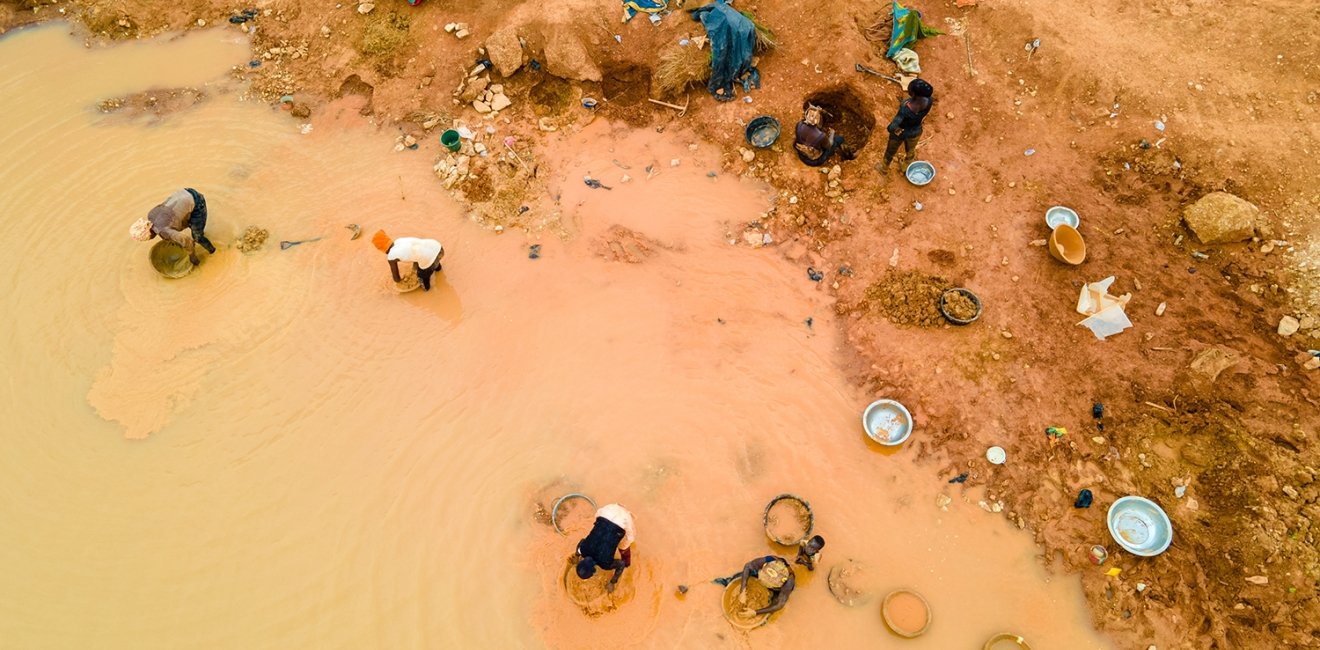Quaker values include sustainability and stewardship. As such, the ongoing issue of galamsey in Ghana is of great concern to us. Galamsey refers to illegal small-scale gold mining where both local communities and foreigners extract gold from rivers, streams, and lands without the necessary licenses or permits. This practice poses a serious threat due to its devastating environmental and social impacts, including:
- Deforestation and Land Degradation: Galamsey activities have ravaged forests, river bodies, and farmlands. Out of Ghana’s 288 forest reserves, 34 have been affected, with over 4,726 hectares of forest land destroyed.
- Water Pollution: Harmful chemicals such as mercury and cyanide used in galamsey operations have contaminated key rivers including the Pra, Ankobra, Oti, Offin, and Birim, posing severe health risks to nearby communities.
- Health Hazards: Prolonged exposure to these toxic chemicals can lead to serious health conditions such as kidney failure, birth defects, and cancer.
- Loss of Livelihoods: Galamsey has disrupted agricultural activities, particularly cocoa farming. In the Mankurom community alone, over 100,000 acres of cocoa farmland have been lost.
The Ghanaian government has taken steps to address the galamsey menace, including the creation of a joint task force and the introduction of community mining initiatives. However, challenges remain due to:
- Corruption: Some state officials, politicians, and party financiers have been linked to galamsey operations, yet very few face prosecution.
- Lack of Political Will: Although the government has publicly committed to tackling the issue, efforts on the ground have been largely ineffective, with many accusing leaders of placing economic gain above citizens’ well-being.
- Porous Borders: The participation of foreign nationals—particularly Chinese miners—has exacerbated the issue. Many operate illegally without proper documentation or oversight.
Beyond the environmental and economic damage, galamsey has significant psycho-social consequences. It undermines the very principles of sustainability, stewardship, equality, and integrity. Key concerns include widespread health risks, gender disparities, and social instability within affected communities.

